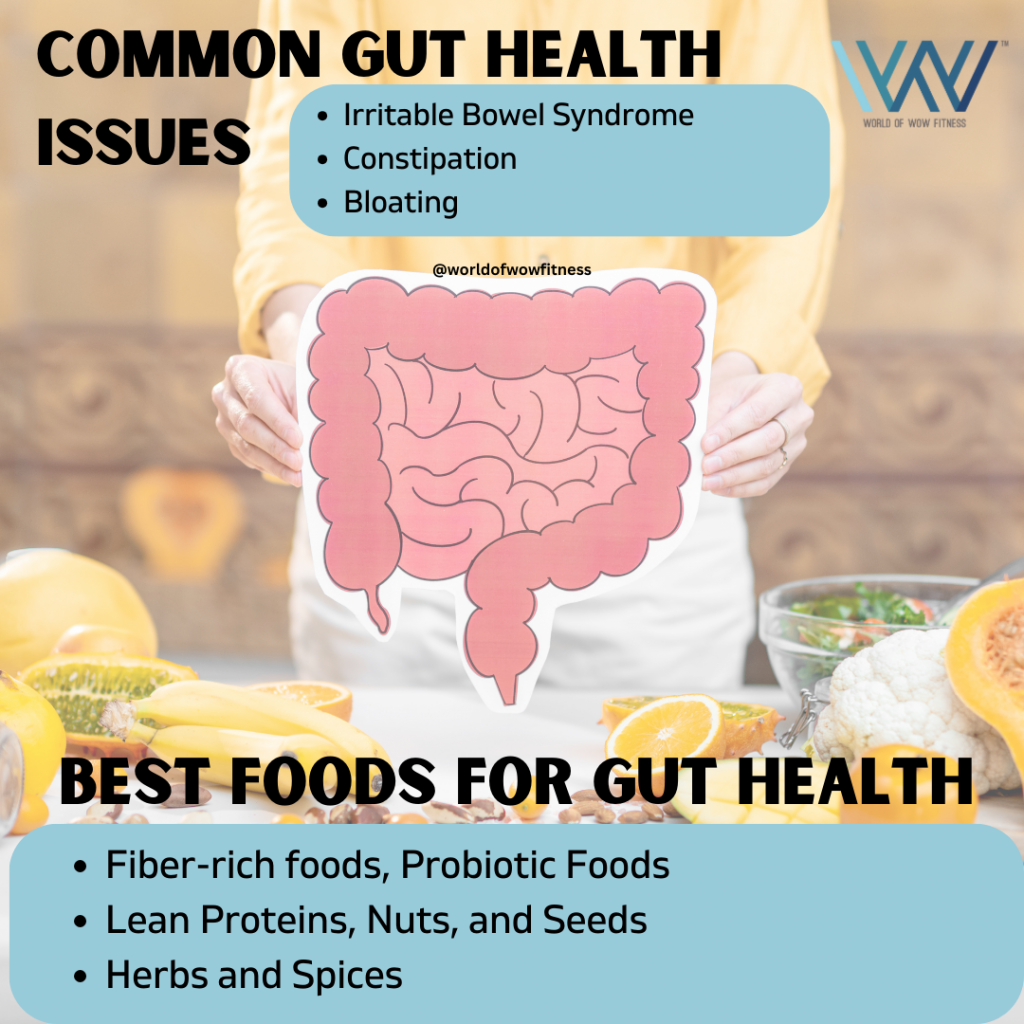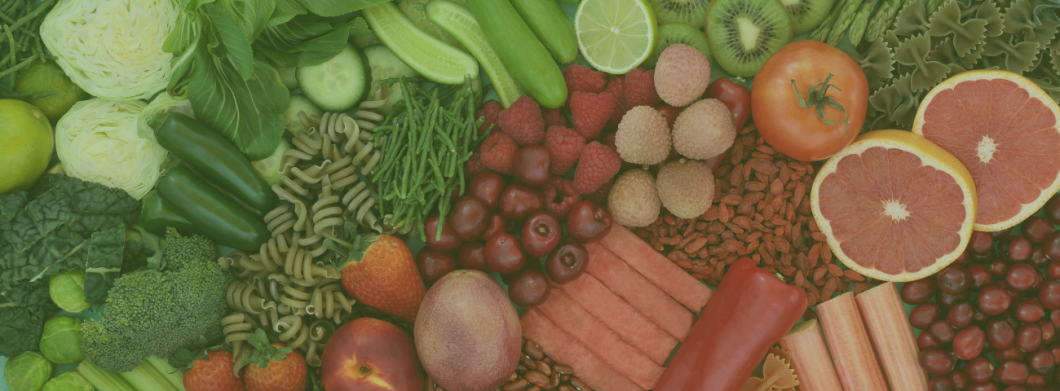Whether you’re looking to alleviate digestive discomfort, boost your energy, or simply feel your best, this guide is your go-to resource. It’s designed to empower you with the knowledge and tools needed to make informed dietary choices and nourish your gut for optimal wellness.
The state of your gut health is crucial for maintaining overall well-being. Not just about digestion, it influences your immune system, mood, energy levels, and even the radiance of your skin. Similarly, when your gut is in balance, you feel better, both inside and out.
Also Read: Shocking Truths About Belly Fat: Uncover the Astonishing Secrets
Understanding Gut Health
Good gut health is the foundation of overall well-being, and it’s something that women, in particular, should pay close attention to. Your gut plays a crucial role in your immune system, digestion, and even your mood. In this comprehensive guide, we’ll delve into what women need to know about gut health and how to maintain a balanced and thriving digestive system.
Certain habits can negatively impact gut health. Excessive stress, smoking, alcohol consumption, and the overuse of antibiotics can disrupt the delicate balance of your gut microbiome. Reducing or eliminating these habits can support a healthier gut.
The Importance of Gut Health
Women’s gut health can be influenced by hormonal changes throughout the menstrual cycle. Progesterone and estrogen levels can affect gut motility and function.
During their menstrual cycle, some women may experience gastrointestinal symptoms such as bloating, constipation, or diarrhea. Moreover, hormonal fluctuations can contribute to these variations. Consequently, it’s essential to be aware of these changes and adapt your diet and lifestyle accordingly. For instance, incorporating fiber-rich foods and staying hydrated can help alleviate symptoms and promote digestive well-being.
For women, maintaining a healthy weight is often a priority. A balanced gut microbiome can aid in weight management by influencing how your body processes and stores calories. An imbalanced microbiome may lead to weight gain or difficulty losing weight. Prioritizing a gut-healthy diet can help support your weight management goals.
Common Gut Health Issues

Irritable Bowel Syndrome (IBS):
Irritable Bowel Syndrome is one of the most prevalent gut health issues among women. It can cause discomfort, bloating, and changes in bowel habits. Hormonal changes during the menstrual cycle can exacerbate symptoms. A high-fiber diet, stress management, and targeted medications can help manage IBS effectively.
Constipation
Many women experience constipation at some point in their lives. It’s often linked to hormonal changes, pregnancy, and iron supplements. A diet rich in fiber, hydration, regular exercise, and the avoidance of excessive caffeine and processed foods can promote regular bowel movements.
Bloating
Bloating is a common complaint among women, particularly during their menstrual cycle. It can be caused by gas, water retention, or overeating. To reduce bloating, consider dietary modifications, including smaller meals, avoidance of gas-producing foods, and herbal teas like ginger or peppermint.
The Gut-Brain Connection
The gut-brain connection, often referred to as the “gut-brain axis,” is a bidirectional communication network between the central nervous system and the enteric nervous system in the gut. This connection plays a pivotal role in regulating various bodily functions, including digestion, mood, and even cognitive function.
The gut is often referred to as the “second brain” because it influences your mood and mental health. The gut is home to trillions of microorganisms, collectively known as the gut microbiome. These microorganisms produce neurotransmitters like serotonin, often referred to as the “feel-good” hormone. An imbalance in the gut microbiome can lead to mood disorders, including anxiety and depression.
Getting Started with Your Gut Health Diet
Ensuring optimal gut health is essential for promoting overall well-being. Here are some quick tips for women to kickstart their journey towards a healthier gut.
- Fiber Focus: Prioritize fiber-rich foods like whole grains, fruits, vegetables, and legumes.
- Probiotics Power: Include probiotic-rich foods like yogurt, sauerkraut, and kefir in your diet.
- Avoid Disruptors: Cut back on refined sugars, processed foods, excessive caffeine, and artificial sweeteners.
- Stay Hydrated: Drink plenty of water to support digestive health.
- Stress Management: Incorporate stress-reduction techniques like mindfulness and meditation.
- Professional Guidance: Consult with a healthcare professional or dietitian for personalized advice.
Best Foods for Gut Health
Optimizing your gut health is vital for women’s overall well-being. Here’s a quick list of the best foods to support a healthy gut:
Fiber-Rich Foods
Fruits, veggies, and whole grains promote a diverse microbiome and regular bowel movements.
Probiotic Foods
Yogurt, kefir, and fermented options introduce beneficial bacteria to your gut.
Lean Proteins
Go for poultry, fish, and tofu as gut-friendly protein sources.
Nuts and Seeds
Almonds, chia seeds, and flaxseeds provide fiber and essential nutrients.
Herbs and Spices
Ginger, turmeric, and peppermint ease digestive discomfort.
Probiotics and Gut Health
Probiotics have taken center stage in the world of women’s gut health, and for good reason. These beneficial microorganisms offer a range of benefits, from improved digestion to enhanced immunity.
Probiotics are live microorganisms, primarily beneficial bacteria, that reside in your gut. They play a pivotal role in maintaining a balanced gut microbiome, which, in turn, influences your overall health. For women, the benefits of probiotics extend beyond digestion, with effects on hormonal balance and immune function.
For women, probiotics offer a powerful tool in the quest for optimal gut health. By understanding their role, choosing the right strains, and incorporating probiotic-rich foods or supplements into your diet, you can take proactive steps towards a healthier gut. A balanced gut microbiome can lead to improved digestion, hormonal balance, immune resilience, and mental well-being. Prioritize your gut, and it will thank you with a healthier, happier you.
Recipes for Gut-Healthy Meals
Maintaining a healthy gut is essential for women’s well-being. Here are some quick and delicious recipes tailored to support your gut health:
Probiotic Breakfast: Yogurt and Berry Parfait
- Layer Greek yogurt with mixed berries and granola.
- Drizzle with honey for added sweetness.
- Enjoy a probiotic-packed start to your day.
Fiber-Rich Salad: Quinoa and Chickpea Delight
- Combine quinoa, chickpeas, cucumber, tomatoes, and red onion.
- Drizzle with olive oil and lemon juice, garnish with herbs.
Omega-3 Dinner: Grilled Salmon with Garlic and Lemon
- Season salmon with garlic, lemon zest, and olive oil.
- Grill or bake until it flakes easily.
- Garnish with fresh herbs and serve with veggies or quinoa.
Sweet Treat: Blueberry and Almond Bliss
- Blend almond milk, Greek yogurt, blueberries, almond butter, and honey.
- Enjoy a gut-friendly smoothie.
Maintaining Gut Health for Long-Term Wellness
Balanced Diet
Prioritize fiber-rich foods, probiotics, and prebiotics for digestion and hormonal balance.
Stress Management
Women often face high-stress levels, so incorporate stress-reduction techniques like meditation and mindfulness.
Physical Activity
Regular exercise supports gut health and overall wellness.
Hydration
Stay adequately hydrated to promote proper digestive function.
Avoid Gut Disruptors
Limit factors like excessive alcohol, smoking, and unnecessary antibiotics that can harm gut health.
Also read: The ONLY Indian Diet For Hormonal Balance
Frequently Asked Questions
What is a gut health diet, and why is it important for women’s wellness?
- A gut health diet focuses on promoting a balanced gut microbiome, crucial for women’s digestion, hormonal balance, and overall well-being.
Can a gut health diet help alleviate common women’s health issues like bloating and hormonal imbalances?
- Yes, a gut health diet can alleviate these issues by promoting a healthy gut microbiome and reducing inflammation.
What are the key components of a gut health diet for women?
- A gut health diet emphasizes fiber-rich foods, probiotics, and prebiotics, which support digestion, hormonal balance, and immune health.
How can women manage stress as part of their gut health diet plan?
- Stress management is crucial for gut health. Women can use techniques like meditation and deep breathing exercises to cope with stress effectively.
Are there specific dietary restrictions or gut-disrupting foods that women should avoid?
- Women should limit or avoid processed foods, excessive alcohol, sugary snacks, and unnecessary antibiotics, as these can negatively affect gut health.
Is Diet Coke good for Women’s gut health?
The impact of Diet Coke on gut health, including for women, is not fully understood.
Conclusion
A complete women’s gut health diet guide is an invaluable resource for achieving optimal wellness. By prioritizing a diet that supports a balanced gut microbiome, women can experience improvements in digestion, hormonal balance, immune resilience, and mental well-being.
In conclusion, the gut is not just a key player in digestion; it’s a central hub that influences numerous aspects of overall health. By understanding the significance of gut health, incorporating a balanced diet, managing stress, and practicing regular exercise, women can invest in their long-term wellness and enjoy the benefits of a healthy gut. Remember, a healthy gut is the cornerstone of a healthier, happier you.


